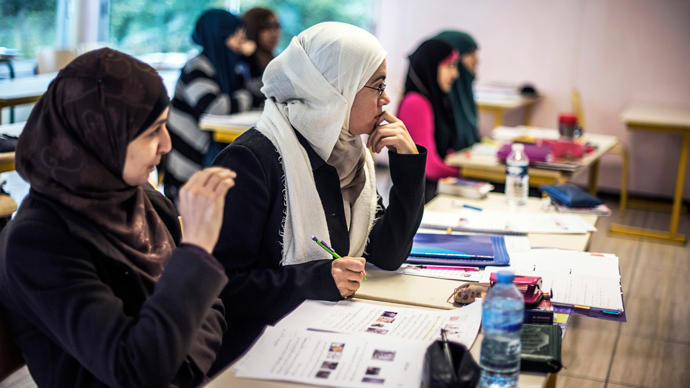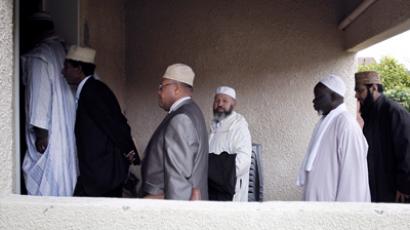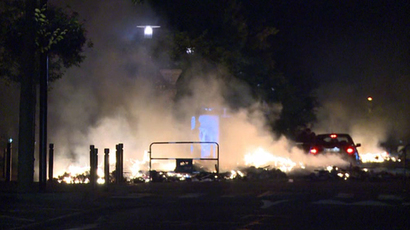France may ban Muslim veil in universities amid ‘escalating tensions’

Momentum is growing in France for a ban on wearing religious symbols in the country’s universities. A new report recommends prohibiting students from wearing religious symbols, such as Christian crucifixes, Jewish Kippah skullcaps and Muslim headscarves.
Due to “escalating tensions in all sectors of university
life” the High Council of Integration (HCI), a research
institute founded by the French government, has made 12
recommendations to ease religious tensions among students.
The report’s key proposal would prohibit wearing religious
symbols in “lecture theaters and [other] places of teaching
and research in public areas at universities,” Le Monde
reported.
In 2004, France passed a law banning schoolchildren from wearing
religious symbols, but the law excluded universities. The
decision, the report claims, has proved successful in reducing
problems stemming from religious differences in schools.
Now the HCI wants to see the same rules applied to universities.
According to interviews conducted in recent months by the authors
of the report, some universities recently experienced tensions
arising from demands to be “excused from attendance for
religious reasons, …for separation of the sexes in lectures and
seminars, instances of proselytizing, disagreements over the
curriculum, and the wearing of religious clothes and
symbols.”
The report’s authors, led by Alain Seksig, France’s
Inspector-General of National Education, said they were seeking
to tackle a number of problems triggered by religious differences
occurring at universities, and are looking to establish the
respect of "religious neutrality" in French universities.
According to the report, the Education Code stipulates that
"the public service of higher education is secular and
independent of any political, economic, religious or ideological
influence." The report’s authors say they therefore “see
no reason why higher education should enjoy the hypothetical
status of extra-territoriality."
While there have been reports of students refusing to work in
co-ed study groups, the HCI says freedom of expression "should
not affect educational activities and public order."
France passed a related law in 2011, effectively banning the
wearing in public of the full-face veil, the niqab. The ban also
applied to the burqa, a full-body covering, if it covers the
face. The law did not forbid the wearing of the hijab headscarf,
however. At the time, Amnesty International condemned the law as
violating freedom of expression for women who wished to wear the
burqa. More than 60 people were arrested in Paris for holding an
unauthorized demonstration against the law.
Late last month, French Interior Minister Manuel Valls defended
the ban on wearing full-face veils in public places after a
police check on a veiled Muslim woman sparked riots in a Paris
suburb. An angry confrontation led to a police station being
surrounded by several hundred people, with some hurling rocks.
Six people were arrested during several hours of street violence.
"The law banning full-face veils is a law in the interests of
women and against those values having nothing to do with our
traditions and values. It must be enforced everywhere," Valls
told RTL radio after the incident.
The influence of Islam has been growing in France, which boasts
Europe’s largest Muslim population, estimated at around 5 million
people. According to French Interior Ministry figures, a much
smaller figure - between 400 and 2,000 women - wear the veil.
However, the law is scarcely enforced as police seek to avoid
confrontations in poor neighborhoods with high Muslim
populations, Reuters reported.














